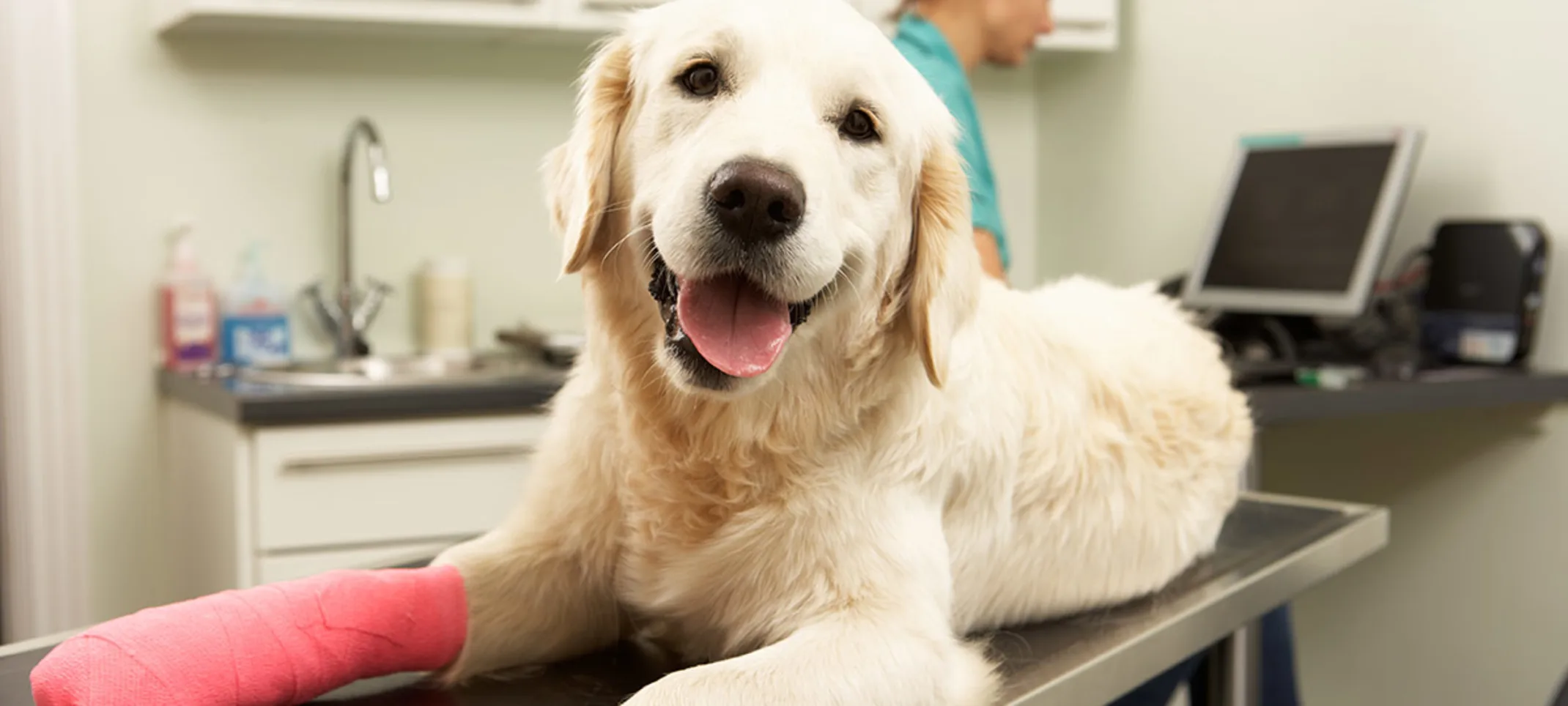Oakwood Animal Hospital
Orthopedic Surgery
Orthopedic surgery can help pets who suffer from joint problems, torn ligaments, broken bones, and even help correct congenital problems.

Overview
Orthopedic surgery treats bones, joints, ligaments, and muscles—areas in which your pet may feel pain in from a variety of conditions. If veterinary orthopedic surgery is recommended for your pet, we will do everything possible to keep them safe and comfortable before, during, and after the surgery.
Why would my pet need orthopedic surgery?
Orthopedic surgery can help animals who suffer from joint problems, torn ligaments, broken bones, and can even help correct congenital problems. Most orthopedic surgery is focused around the cranial cruciate ligament (CCL), sometimes referred to as the Anterior Cruciate Ligament (ACL).
When should I seek orthopedic care for my pet?
Pay attention to the way your pet is moving around, any unusual changes may mean they have an orthopedic condition.
Typical symptoms of an orthopedic disorder include difficulty getting up, favoring a leg intermittently when walking, limping - swelling in the leg, stiffness, or decreased activity level. If you notice any of these problems, you should take your pet to our facility for an examination.
How are typical orthopedic injuries treated?
MRIT (Modified Retinacular Imbrication Technique)
This is an orthopedic procedure used to help stabilize the stifle joint of a patient who has torn their cranial cruciate ligament. During this procedure, damaged tissue is removed from the joint capsule of the damaged knee. Then, the surgeon places stabilizing sutures made of strong material to help keep the knee joint from sliding and causing severe arthritis. Scar tissue will build up around the stabilization sutures, adding additional stability to the knee and reducing the amount of arthritis that may form.
Luxating Patella Surgery
Patellar luxation is a dislocated knee cap and is most commonly seen in small breed dogs. Most patellar luxation occurs when the patellar displaces from its normal position to the inside of the knee. Pets with this condition may have an intermittent non-weight bearing lameness and you may even hear a popping noise in their knee. There are many ways to treat this from a simple knee brace for a Grade 1 luxation, to realignment surgery for lower grade luxations. Bring your pet in so we can determine the best way to treat the luxation.
Fracture Repairs
A fracture is a break in the bone or cartilage and can be repaired from simple external splinting to more advanced internal plating. Fractures are typically caused by trauma, disease or tumor in the bone, or stress applied to a certain bone.
Our veterinarians adhere to the highest level of care standards for all surgical procedures. Our highly skilled doctors place the utmost emphasis on pain management to ensure your pet is safe and comfortable throughout the treatment process. Using advanced technology, your pet's vital signs are monitored by our veterinary technicians, who will remain with your pet through recovery.
Vaccines Required:
Dogs – Rabies, Distemper, Parvovirus, Leptospirosis, Annual Fecal test, & Heartworm test.
Cats – Rabies, Distemper & Annual Fecal test.
